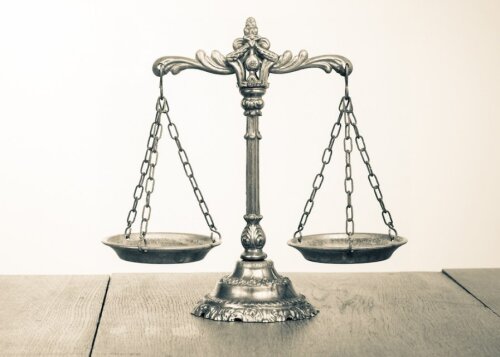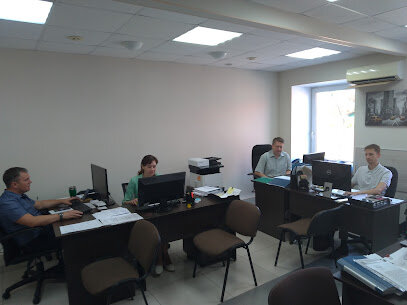Best Bankruptcy & Debt Lawyers in Perm
Share your needs with us, get contacted by law firms.
Free. Takes 2 min.
List of the best lawyers in Perm, Russia
About Bankruptcy & Debt Law in Perm, Russia
Bankruptcy and debt law in Perm operates within the Russian federal legal framework. The main legislation is Federal Law No. 127-FZ "On Insolvency (Bankruptcy)" which sets out procedures for corporate insolvency, individual entrepreneurs and personal bankruptcy for private individuals. In Perm, as in other regions of Russia, bankruptcy cases are considered by the local arbitration court and enforced by the Federal Bailiff Service. Bankruptcy processes are designed either to restore solvency through rehabilitation and restructuring, or to liquidate assets and distribute proceeds to creditors when recovery is not possible. Personal bankruptcy has been available since mid-2010s for individuals who meet statutory thresholds and conditions, with specific rules about which debts can be discharged and which cannot.
Why You May Need a Lawyer
Bankruptcy law is technical, time-sensitive and can have long-term consequences for your finances, assets and credit record. Common situations where legal help is advisable include:
- You face foreclosure, wage garnishment or active enforcement proceedings by bailiffs.
- Creditors have started or threatened to start bankruptcy claims against you or your business.
- You are considering filing for personal bankruptcy and need to determine eligibility and likely outcomes.
- You are an individual entrepreneur or small business owner with insolvency risks and need to consider restructuring or external management options.
- You need to file and defend creditor claims, participate in creditors meetings, or challenge the actions of an arbitration manager.
- You suspect unlawful creditor actions, fraud, or improper behavior by enforcement officers and need to protect your rights.
A lawyer experienced in bankruptcy will explain procedural steps, prepare and submit required documents, represent you in the arbitration court, negotiate with creditors and help protect exempt assets where possible.
Local Laws Overview
Key aspects of the legal framework relevant in Perm include:
- Governing law - Federal Law No. 127-FZ defines the overall bankruptcy regimes, the sequence of procedures, the roles of the arbitration court, creditors, debtors and the arbitration manager, and the legal consequences of bankruptcy.
- Jurisdiction - Bankruptcy cases are heard in the arbitration court with territorial jurisdiction over the Perm Krai. The court supervises procedures, approves or rejects plans and oversees sale of debtor assets.
- Personal bankruptcy - Natural persons may apply for bankruptcy if they meet statutory thresholds for the amount of debt and the length of default. The law sets out stages such as preliminary proceedings, consideration of settlement agreements, and bankruptcy proceedings leading to a repayment schedule or liquidation of assets.
- Treatment of different types of debt - Certain obligations - for example, alimony and some fines - are treated differently and are often not fully dischargeable. Secured creditors retain rights against collateral, subject to court procedures.
- Arbitration manager - An independent court-appointed specialist administers the bankruptcy case, collects and verifies creditor claims, manages or sells assets, and distributes funds in compliance with the priority order established by law.
- Creditor claims and voting - Creditors must file claims within statutory deadlines and may participate in creditors meetings where plans or settlement offers are approved or rejected.
- Enforcement and execution - The Federal Bailiff Service enforces court decisions, including seizure and auction of assets. There are legal limits and exemptions to protect minimal means of subsistence and certain types of property.
- Cross-border matters - If debts or assets involve foreign parties, international insolvency rules and recognition of foreign judgments can affect proceedings.
Frequently Asked Questions
How do I know if I qualify for personal bankruptcy?
Personal bankruptcy eligibility depends on whether your debts exceed the statutory monetary threshold and whether payments have been overdue for the minimum period required by law. The exact numeric threshold and conditions can change with legislative amendments. A lawyer can assess your financial situation, verify qualifying debts and advise whether filing a petition is appropriate.
Can filing for bankruptcy stop enforcement actions by creditors?
Filing a bankruptcy petition generally triggers a temporary moratorium or stay on certain enforcement actions while the court considers the case. However, the scope and duration of protection depend on the stage of the procedure and the type of enforcement. Emergency measures and secured creditor rights may still apply. Timely legal advice is important to understand protections in your case.
Will I lose all my property if I file for bankruptcy?
Not necessarily. Bankruptcy law provides for exemptions and protection of essential items and minimal means of subsistence. The court and arbitration manager will evaluate which assets can be sold and which are exempt. In many cases debtors are able to keep certain personal items and tools necessary for employment, but valuable non-exempt assets may be sold to satisfy creditors.
What debts cannot be discharged in bankruptcy?
Certain obligations are treated differently and may not be fully dischargeable. Typical examples include child support and certain fines or penalties imposed for criminal activity. Secured debts may remain attached to collateral unless the court approves different treatment. A bankruptcy lawyer can review your debts and explain what can and cannot be eliminated.
How long does a bankruptcy procedure usually take?
Duration varies depending on the complexity of the case, the debtor type and the chosen procedure. Some settlement agreements or simplified procedures can be relatively short, while full bankruptcy proceedings, asset sales and distribution can take many months or over a year. Timeframes also depend on court workload and creditor activity.
What are the costs of filing bankruptcy?
Costs can include court fees, fees for the arbitration manager, expert evaluations, and legal fees for counsel. The amount depends on case complexity and the professionals involved. In many situations, legal consultation early on helps estimate likely costs and compare alternatives such as negotiated settlements or restructuring.
Can creditors bring criminal charges because I cannot pay?
Failure to pay a civil debt alone is not a criminal offense. Criminal liability can arise if there is fraud, intentional concealment of assets, falsification of documents or deliberate actions aimed at undermining creditors. If you are concerned about criminal exposure, consult a lawyer immediately.
What happens to my credit record after bankruptcy?
Bankruptcy is recorded in credit history and typically negatively affects your credit rating for several years. The precise impact and how long the record remains depend on the reporting systems and the nature of the procedure. However, many people find bankruptcy preferable to ongoing enforcement and unmanageable debt burdens. A lawyer can outline the likely credit consequences in your situation.
Can an individual entrepreneur be declared bankrupt in a different way than a private person?
Individual entrepreneurs and legal entities are subject to the general bankruptcy law, but certain procedural distinctions and practical consequences may differ. For instance, business assets and liabilities are evaluated in the context of commercial activity. An insolvency specialist can explain the differences and the options most suitable for an entrepreneur.
How should I prepare for a first meeting with a bankruptcy lawyer?
Gather documents that show your financial position - loan and credit agreements, promissory notes, bank statements, notices from creditors, enforcement documents from bailiffs, property titles, income evidence, passport and taxpayer ID. Prepare a timeline of missed payments and creditor contacts. Being organized helps the lawyer assess your case efficiently and recommend next steps.
Additional Resources
For someone in Perm seeking help or official information, useful places to contact include:
- The arbitration court that handles bankruptcy cases in the Perm region for court schedules and filings.
- The regional office of the Federal Bailiff Service - for information on enforcement proceedings and seized property.
- The regional branch of the Federal Tax Service - where tax claims against a business or individual may be registered.
- The local bar association or regional lawyer organizations - to find qualified bankruptcy and insolvency lawyers.
- Nonprofit legal aid centers, university legal clinics and consumer rights organizations - for low-cost or free consultations and information.
- Official legal texts and commentaries - including Federal Law No. 127-FZ and related regulations - for the authoritative statutory framework. Consult a lawyer to get up-to-date interpretation and applicability.
Next Steps
If you think you need legal assistance with bankruptcy or debt issues in Perm, consider the following practical steps:
- Collect documentation - loans, contracts, notices, enforcement acts, income and asset records, passport and taxpayer ID. Accurate records help your lawyer assess options quickly.
- Seek an initial consultation with a lawyer experienced in bankruptcy. Ask about their experience with similar cases, likely timelines and fee structure.
- Ask the lawyer to explain all available options - negotiation with creditors, restructuring, settlement agreements, or filing a bankruptcy petition - and the risks and benefits of each.
- If enforcement actions are in progress, notify your lawyer immediately to explore emergency measures or to prepare a timely court filing.
- Keep communications and notices from creditors and bailiffs. Do not ignore court orders or enforcement notices - responding promptly improves your legal position.
- If cost is a concern, ask about free initial consultations, legal aid services or staged fee arrangements.
Bankruptcy and debt matters can be stressful, but with proper advice and timely action you can understand your options and take steps to protect your rights and rebuild financial stability.
Lawzana helps you find the best lawyers and law firms in Perm through a curated and pre-screened list of qualified legal professionals. Our platform offers rankings and detailed profiles of attorneys and law firms, allowing you to compare based on practice areas, including Bankruptcy & Debt, experience, and client feedback.
Each profile includes a description of the firm's areas of practice, client reviews, team members and partners, year of establishment, spoken languages, office locations, contact information, social media presence, and any published articles or resources. Most firms on our platform speak English and are experienced in both local and international legal matters.
Get a quote from top-rated law firms in Perm, Russia — quickly, securely, and without unnecessary hassle.
Disclaimer:
The information provided on this page is for general informational purposes only and does not constitute legal advice. While we strive to ensure the accuracy and relevance of the content, legal information may change over time, and interpretations of the law can vary. You should always consult with a qualified legal professional for advice specific to your situation.
We disclaim all liability for actions taken or not taken based on the content of this page. If you believe any information is incorrect or outdated, please contact us, and we will review and update it where appropriate.
Browse bankruptcy & debt law firms by service in Perm, Russia
Perm, Russia Attorneys in related practice areas.










